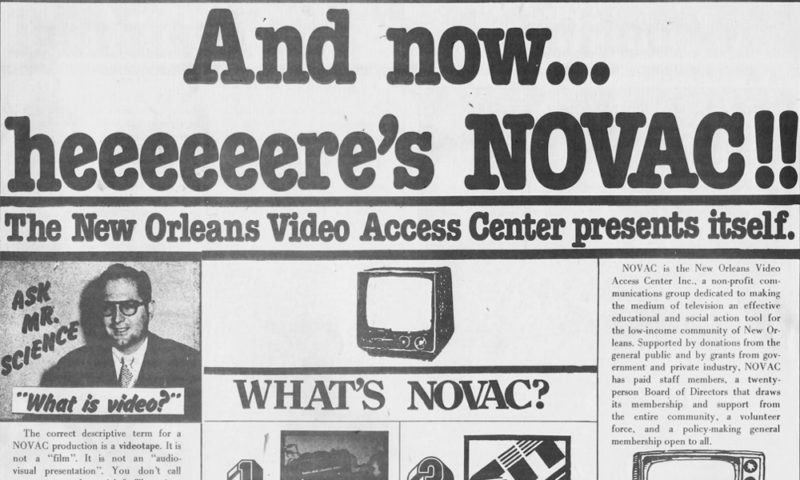Preserving Independent Film: This Cat Can Play Anything
NOVAC provides public access to culture and history by archiving and restoring local low-budget, independent film. One of NOVAC’s biggest projects was the documentary “This Cat can Play Anything,” which aired nationally on PBS in 1977.
The documentary follows lively jazz musician Mannie Sales around New Orleans. Sales sang and played his banjo, guitar, and fiddle on the streets, in restaurants, in music venues such as Preservation Hall—anywhere that allowed him to bestow joy onto others. Sales mentions in this documentary that “100% of the job of being a musician” is “to make the people listening to the music happy” (Grugulis, Irena and Stoyanova, Diminitrinka. “I Don’t Know Where You Learn Them: Skills in Film and TV.” Creative Labor: Working in Creative Industries. By Irena Grugulis. New York: Palgrave Macmillon, 2009. 135-36. Print). He demonstrates how he creates chords and melodies, “with a little common sense.” He mentions: “I could have been a carpenter if I wanted to…I didn’t want that…I didn’t wanna be nuthin’ but a musician.” The documentary follows Sales as he visits friends and neighbors, recalls memories of how he started out, and ruminates on the different musicians he’s played with. Sales provides a first-hand narrative of what it’s like to be a jazz musician in New Orleans.
“This Cat Can Play Anything” has the ability – as McKinnon believes of many of NOVAC’s film projects – to “[give] voice to early documentary film makers.” The documentary provides access to “culture that happens on the streets and in real time, and was not up until then well-preserved.” NOVAC plays a significant role in preserving both tidbits of live history, and homegrown, independent film: “if you look at the majority of the Independent locally created films from here they were generally documentaries trying to focus on capturing that heritage for other people.”





